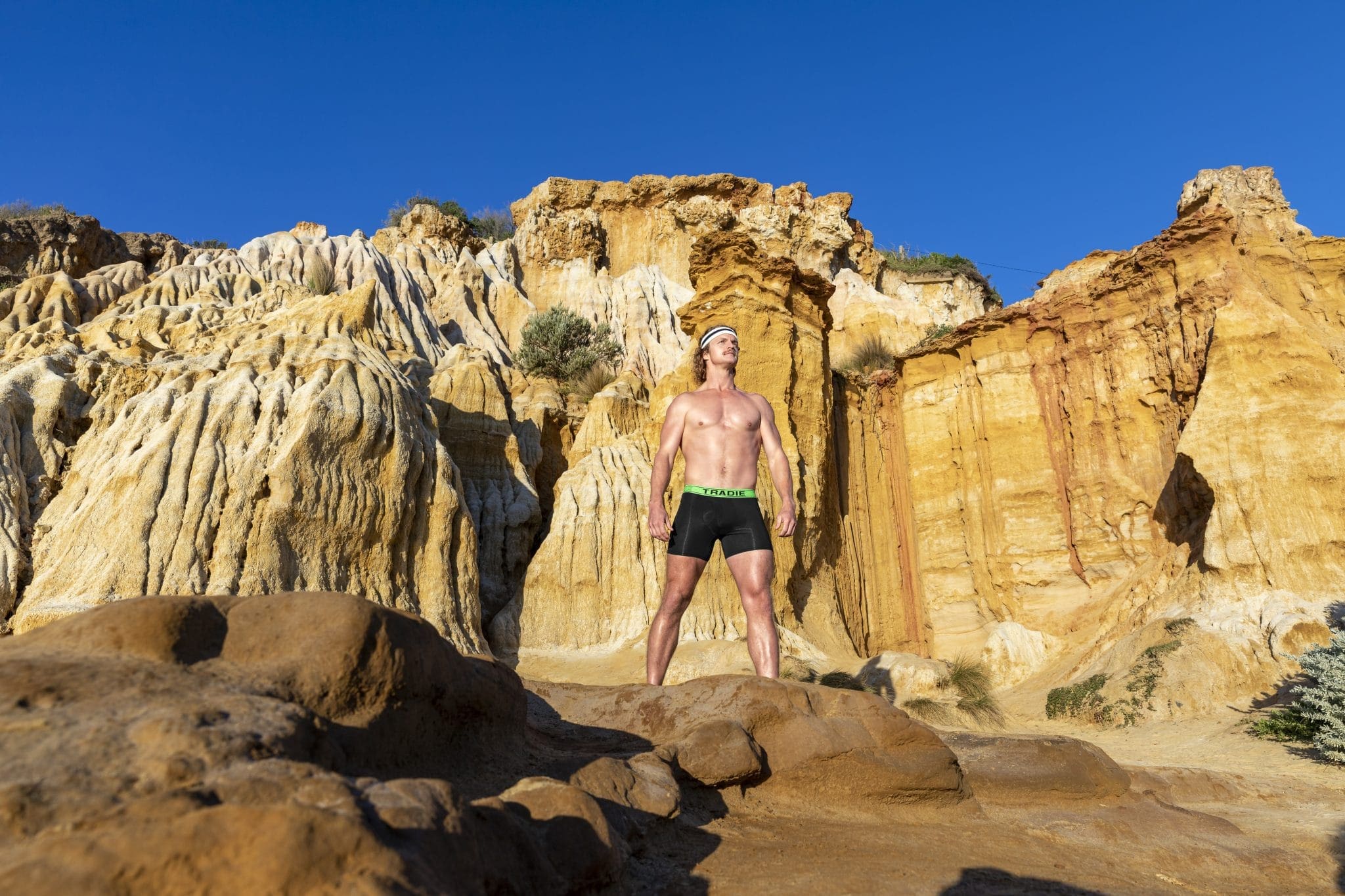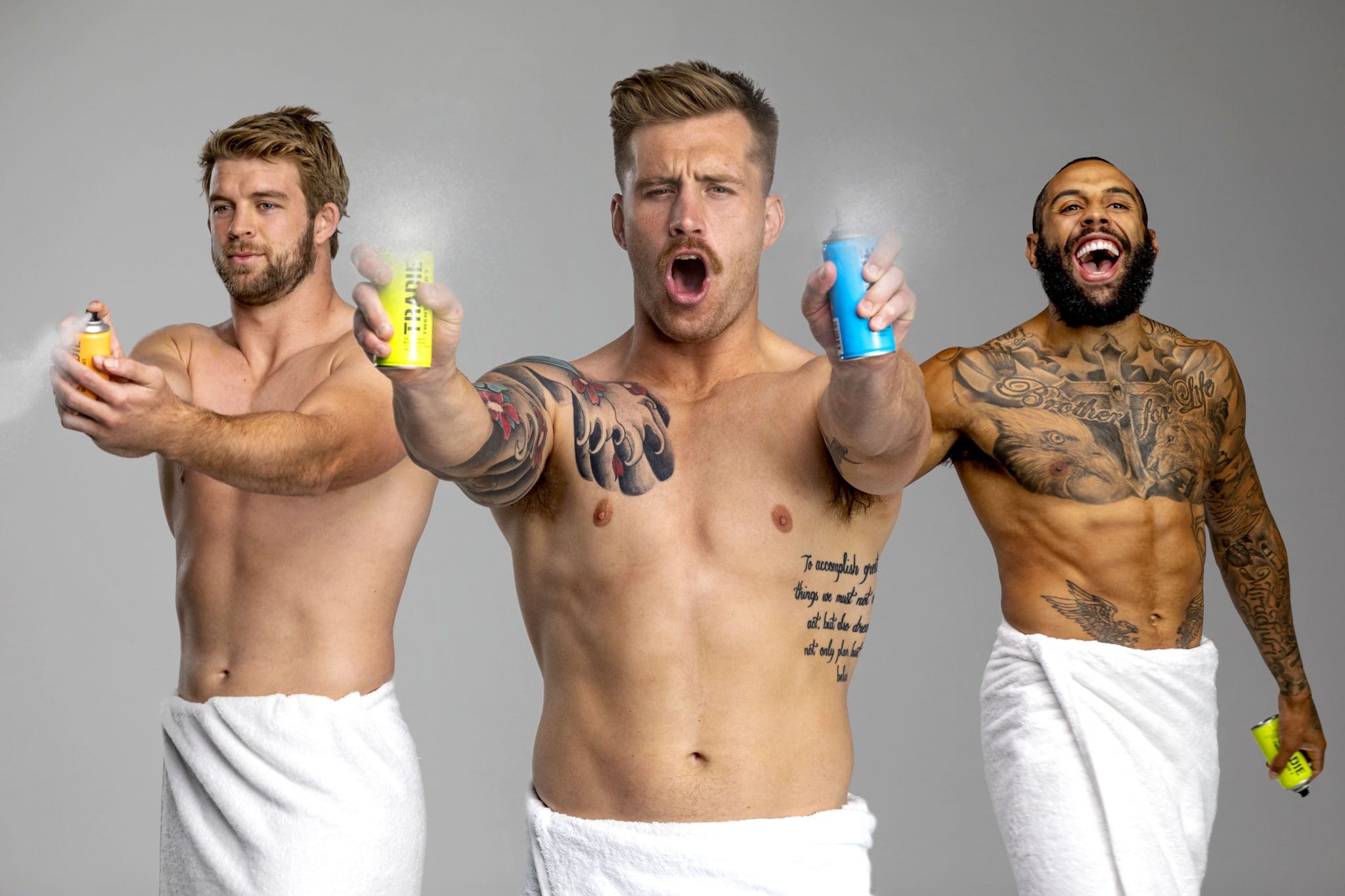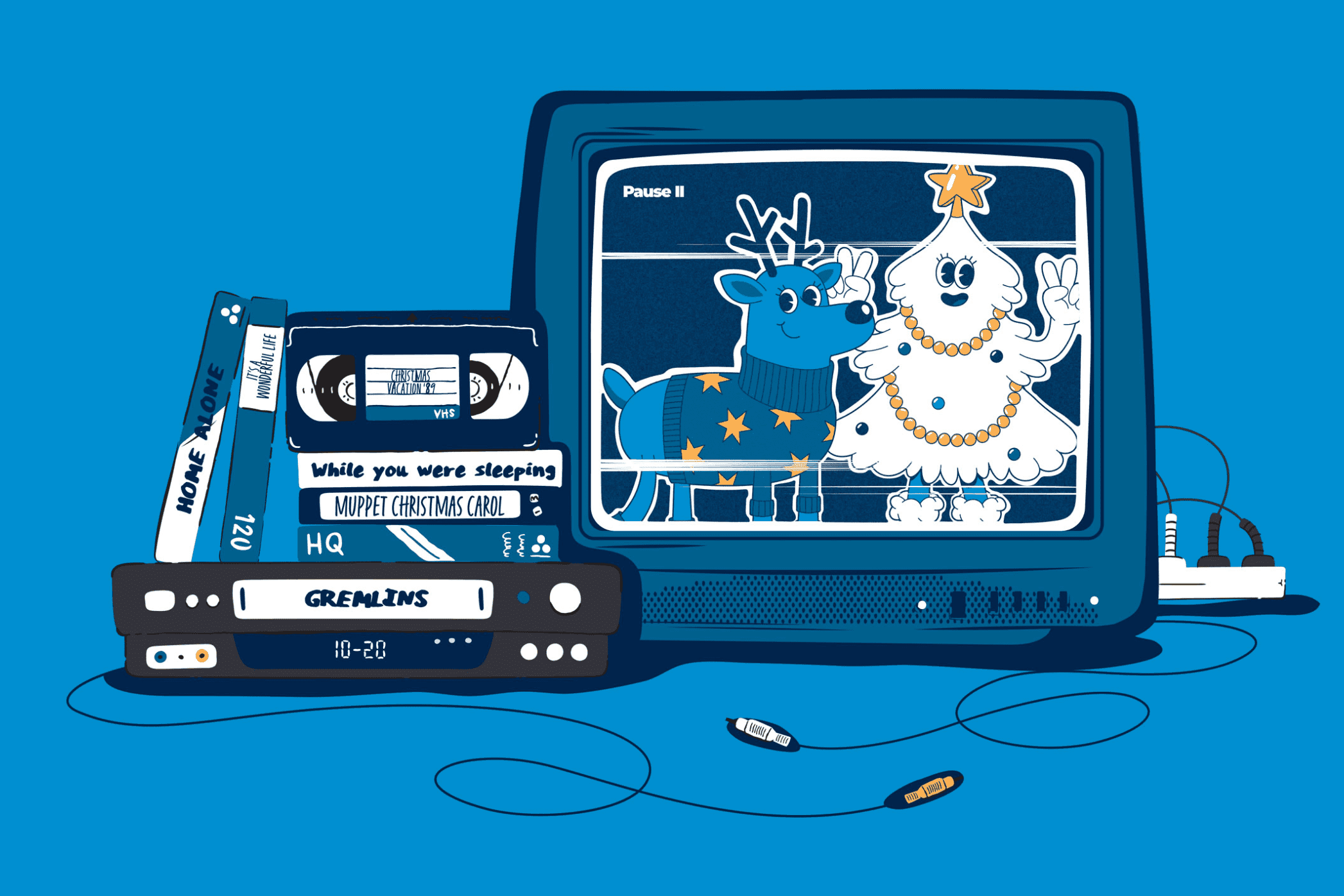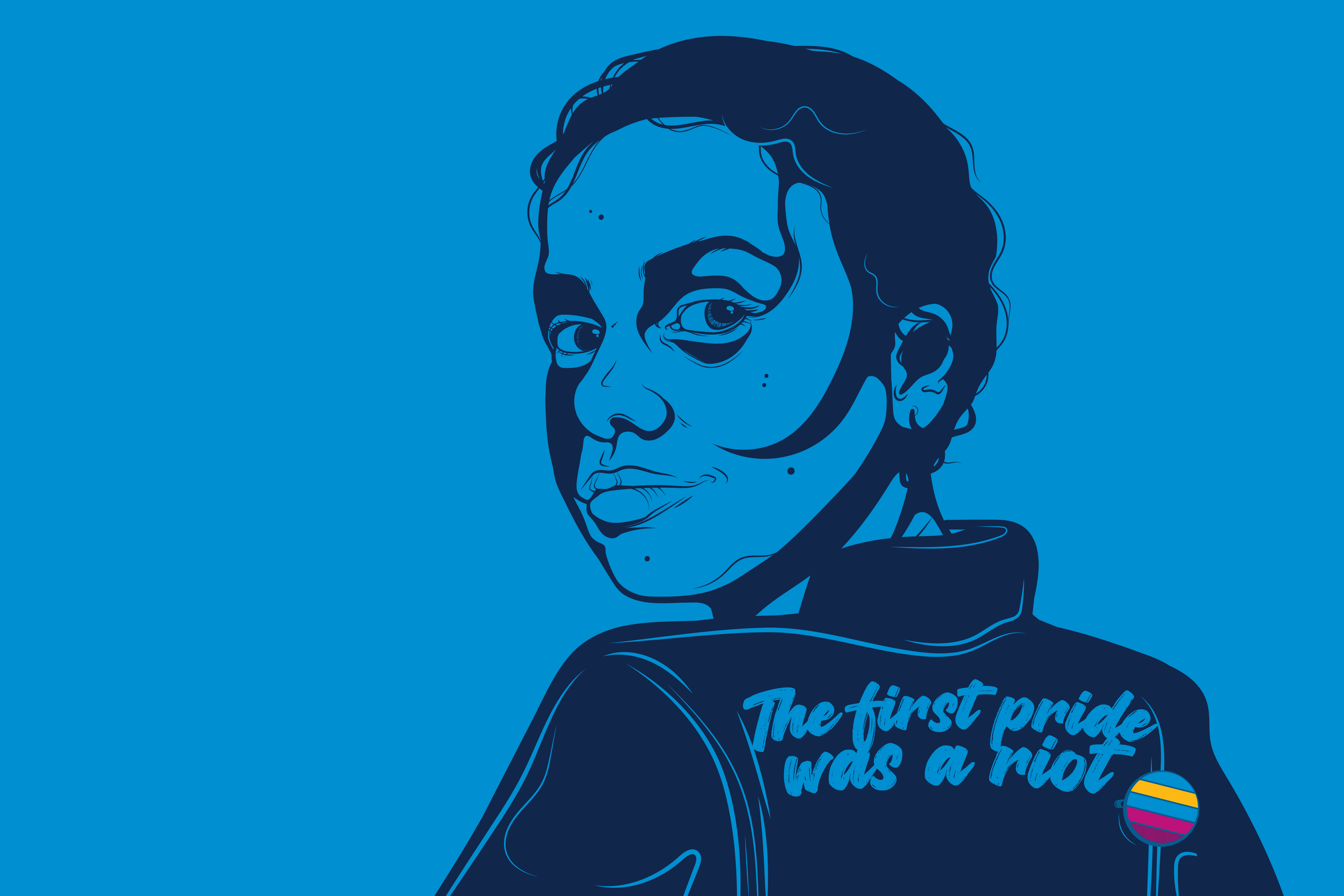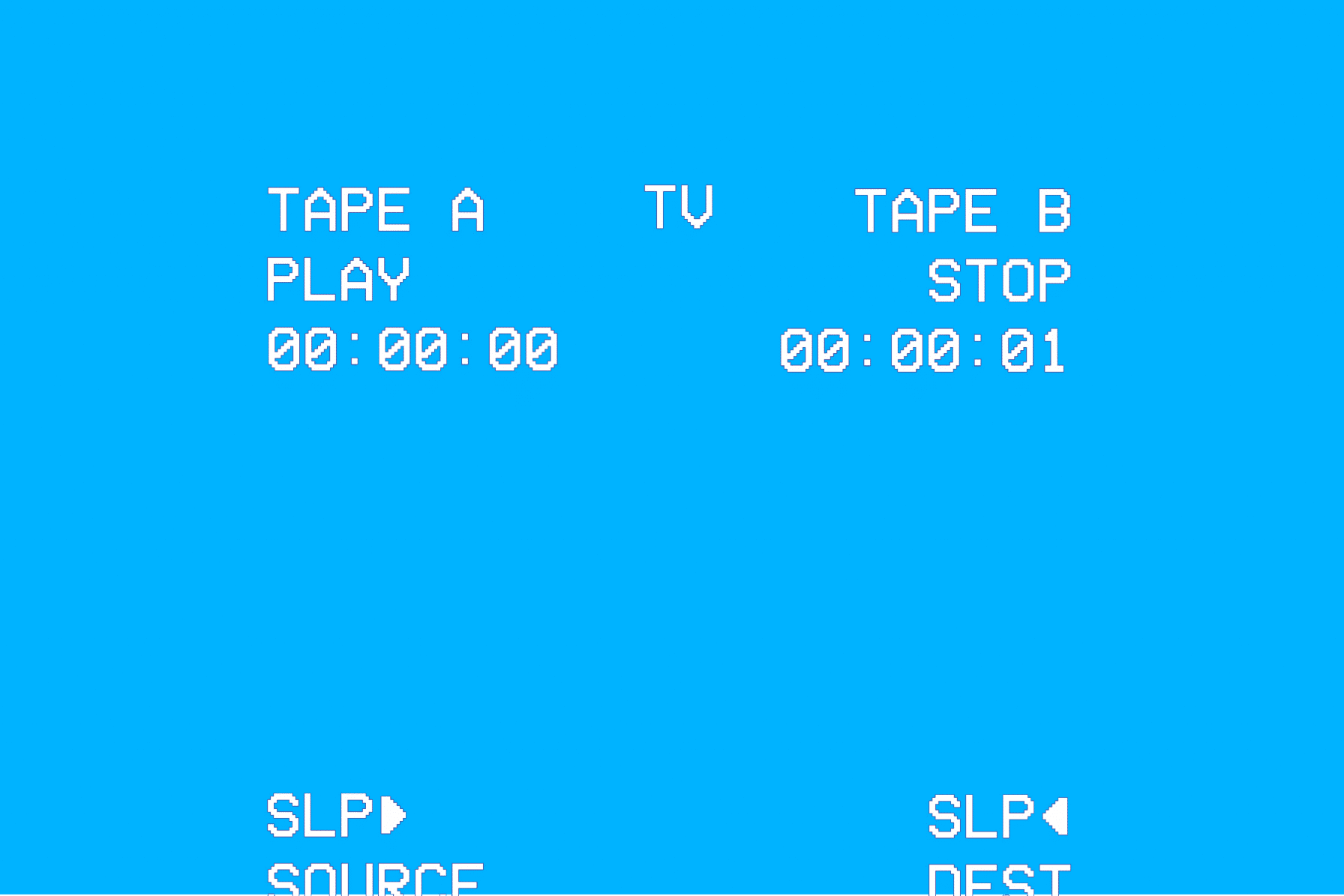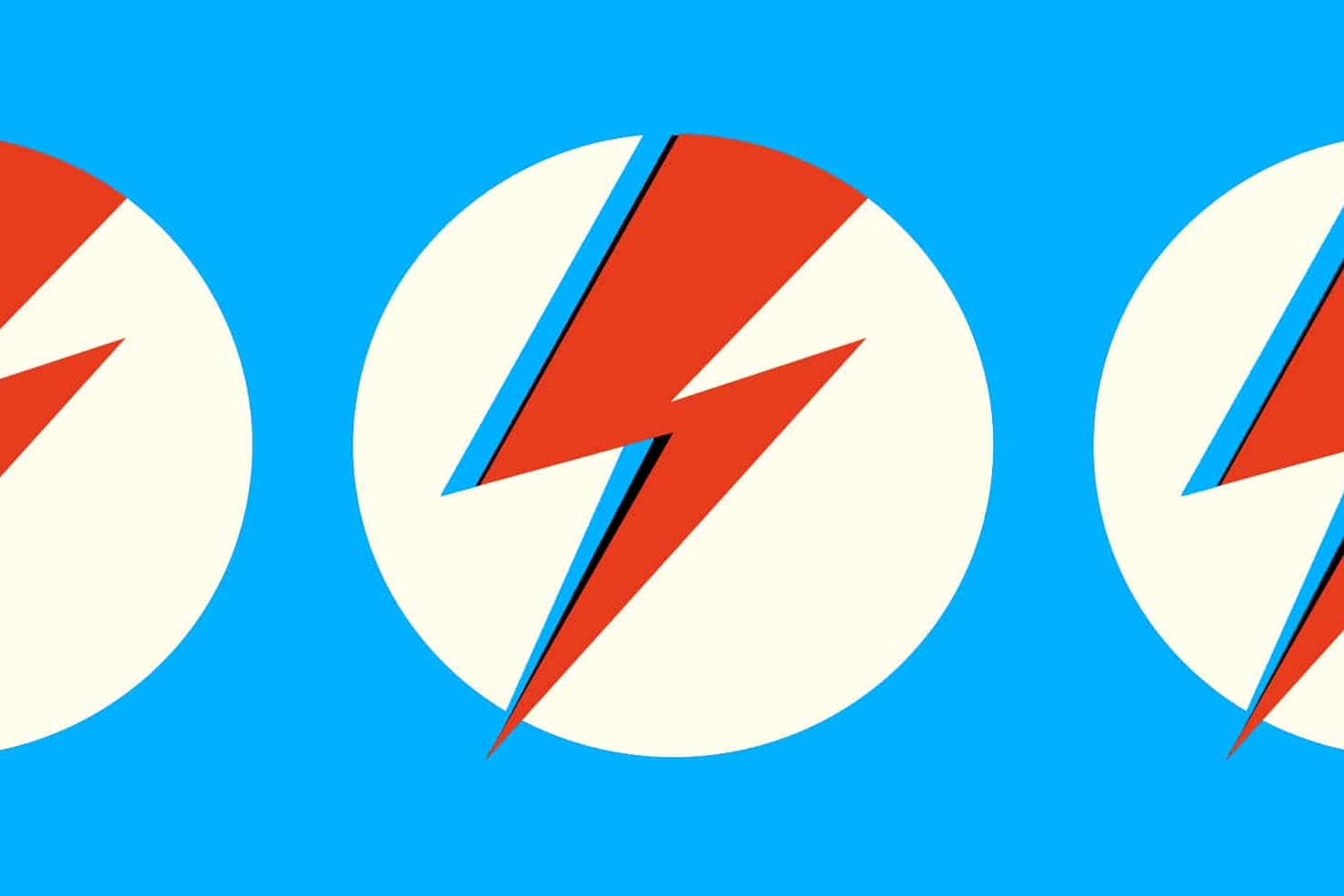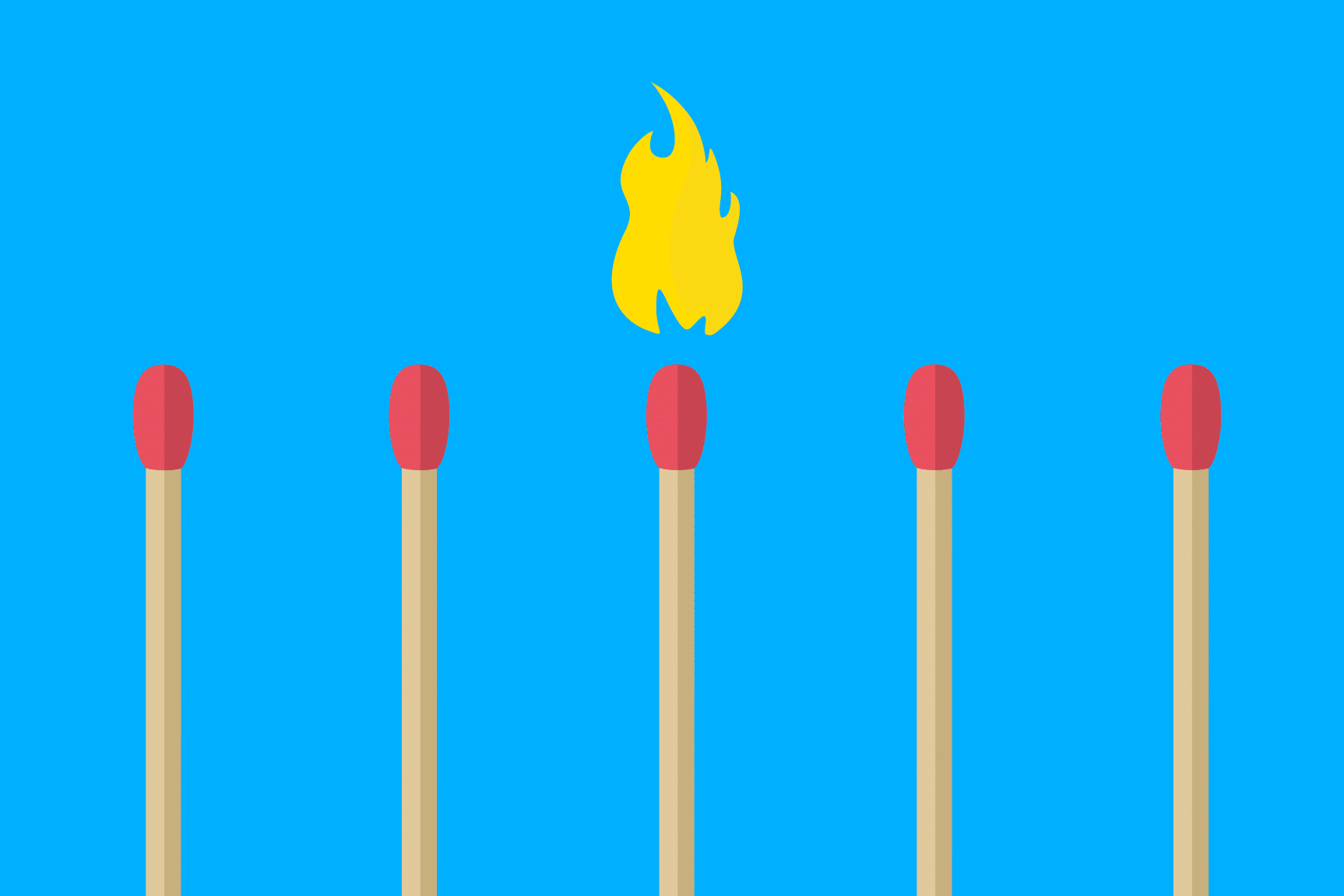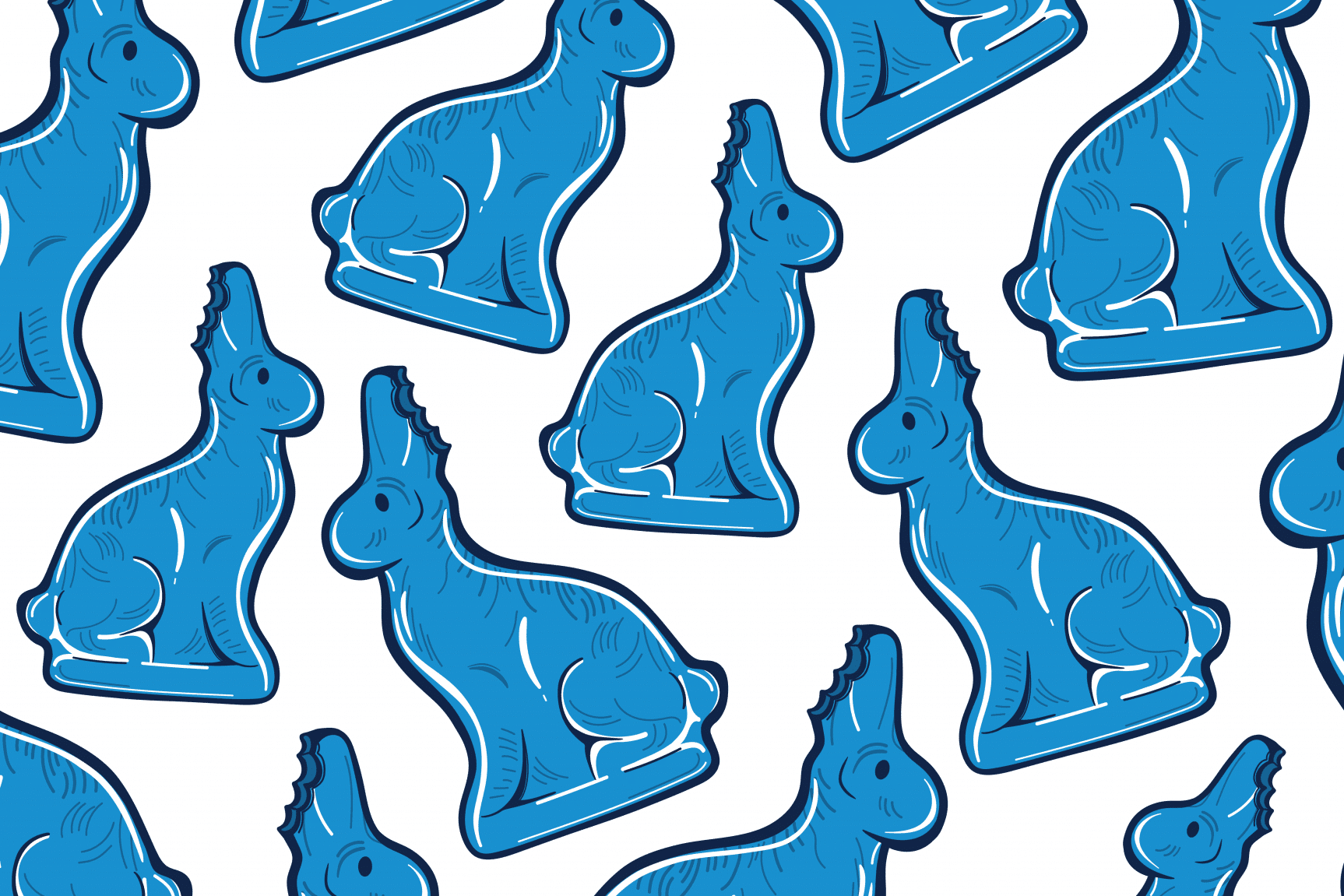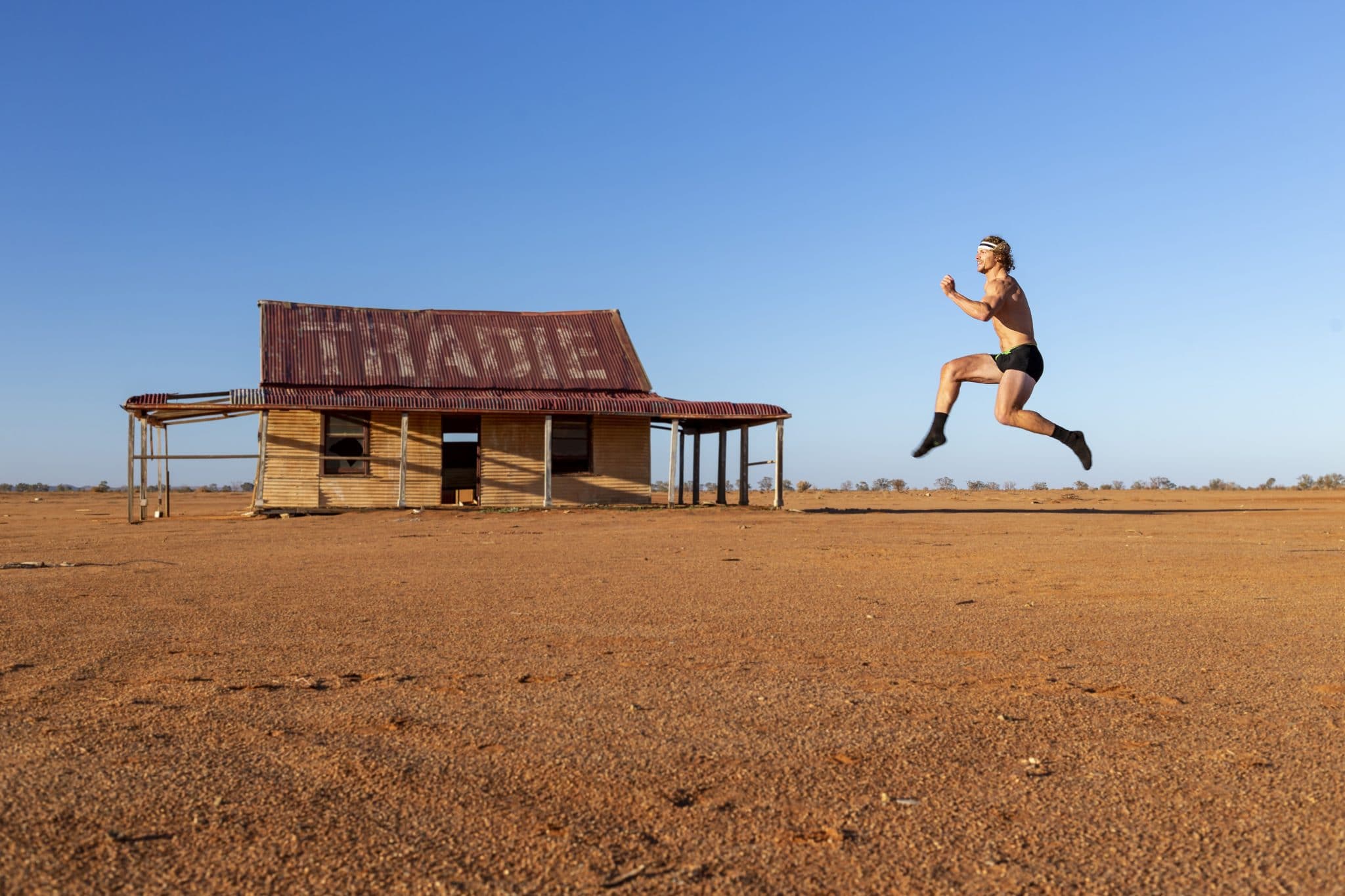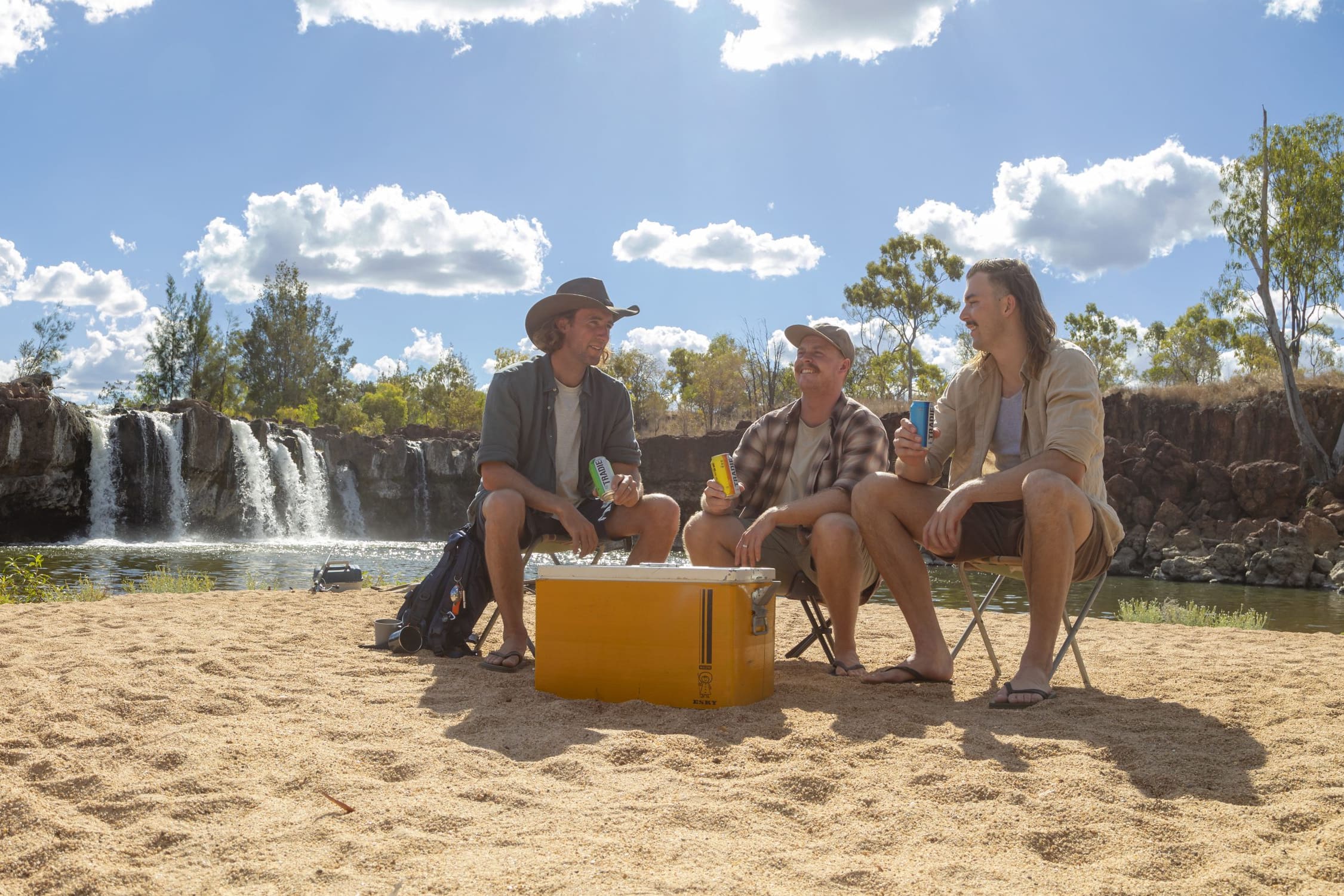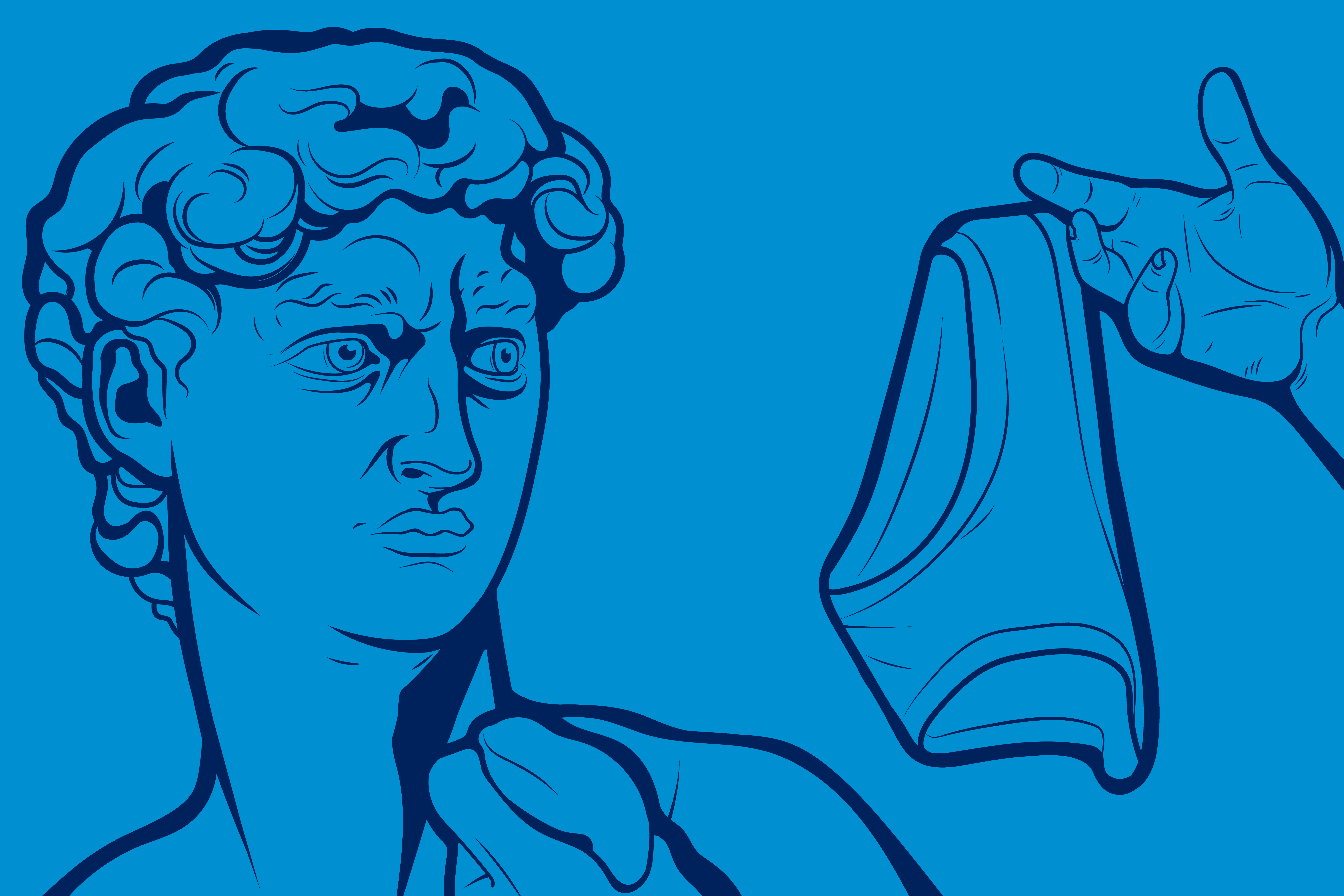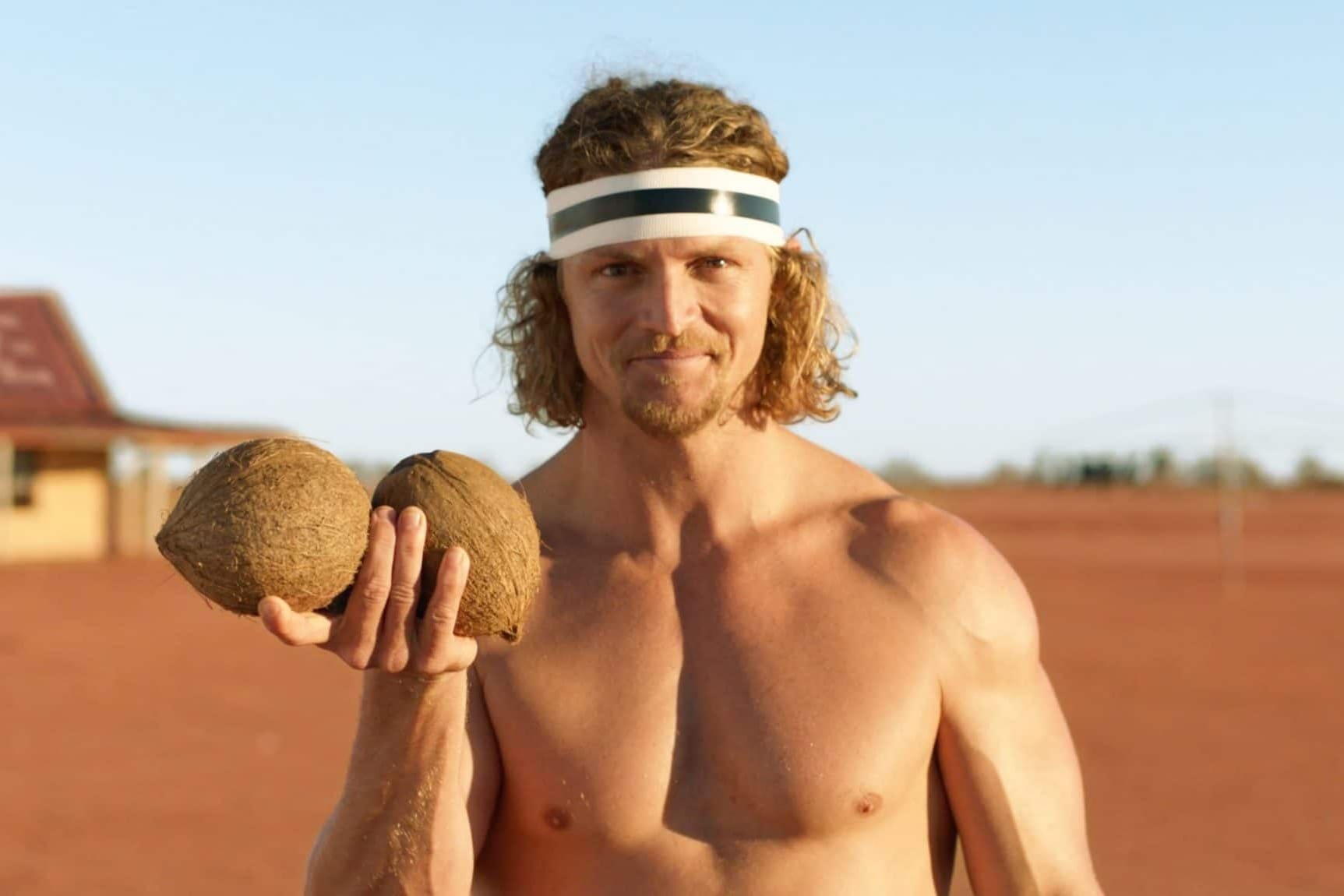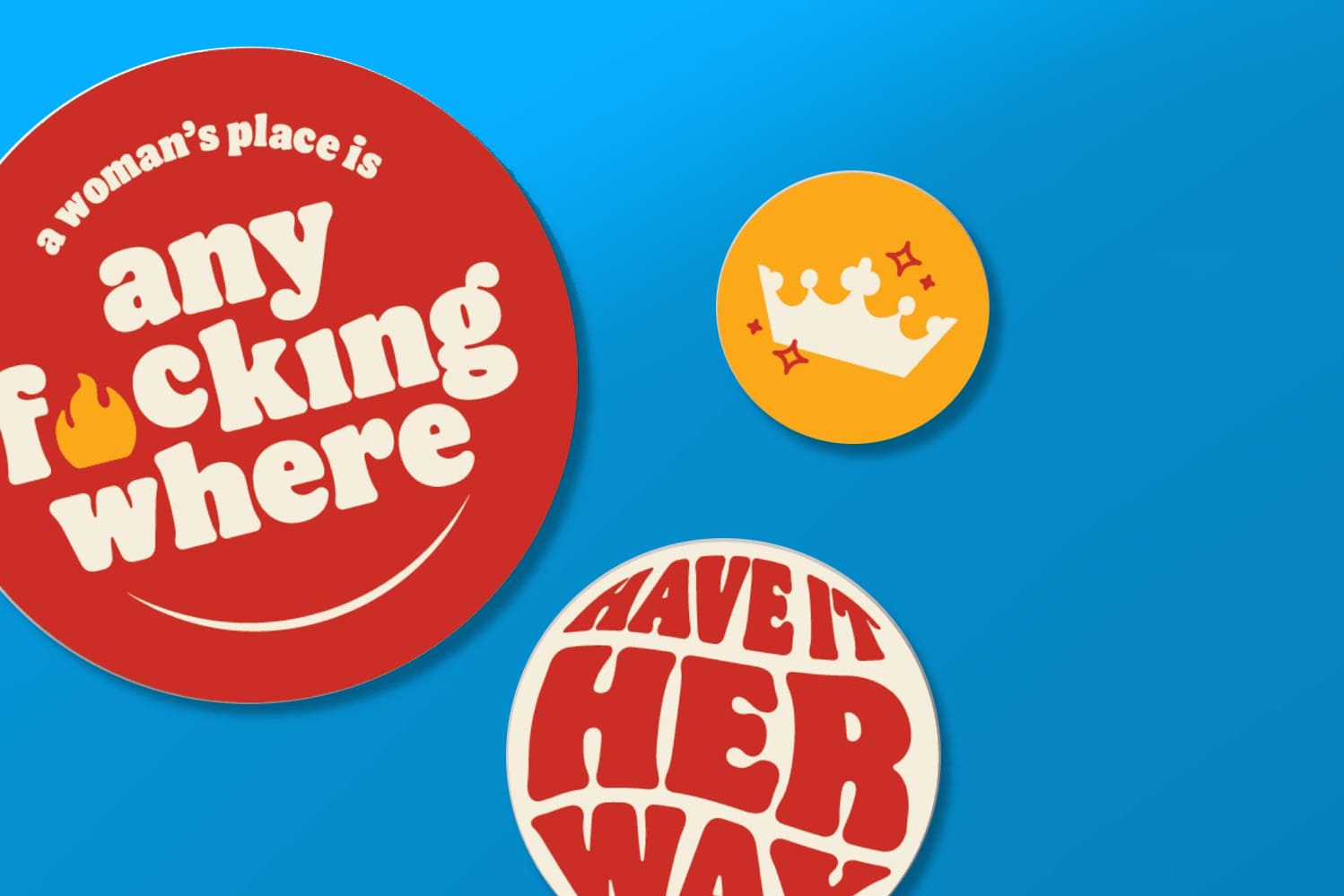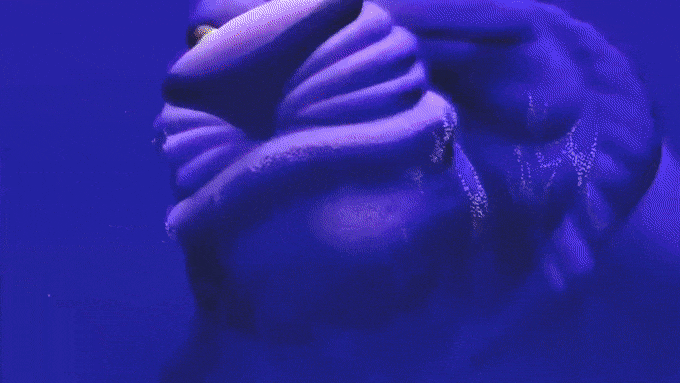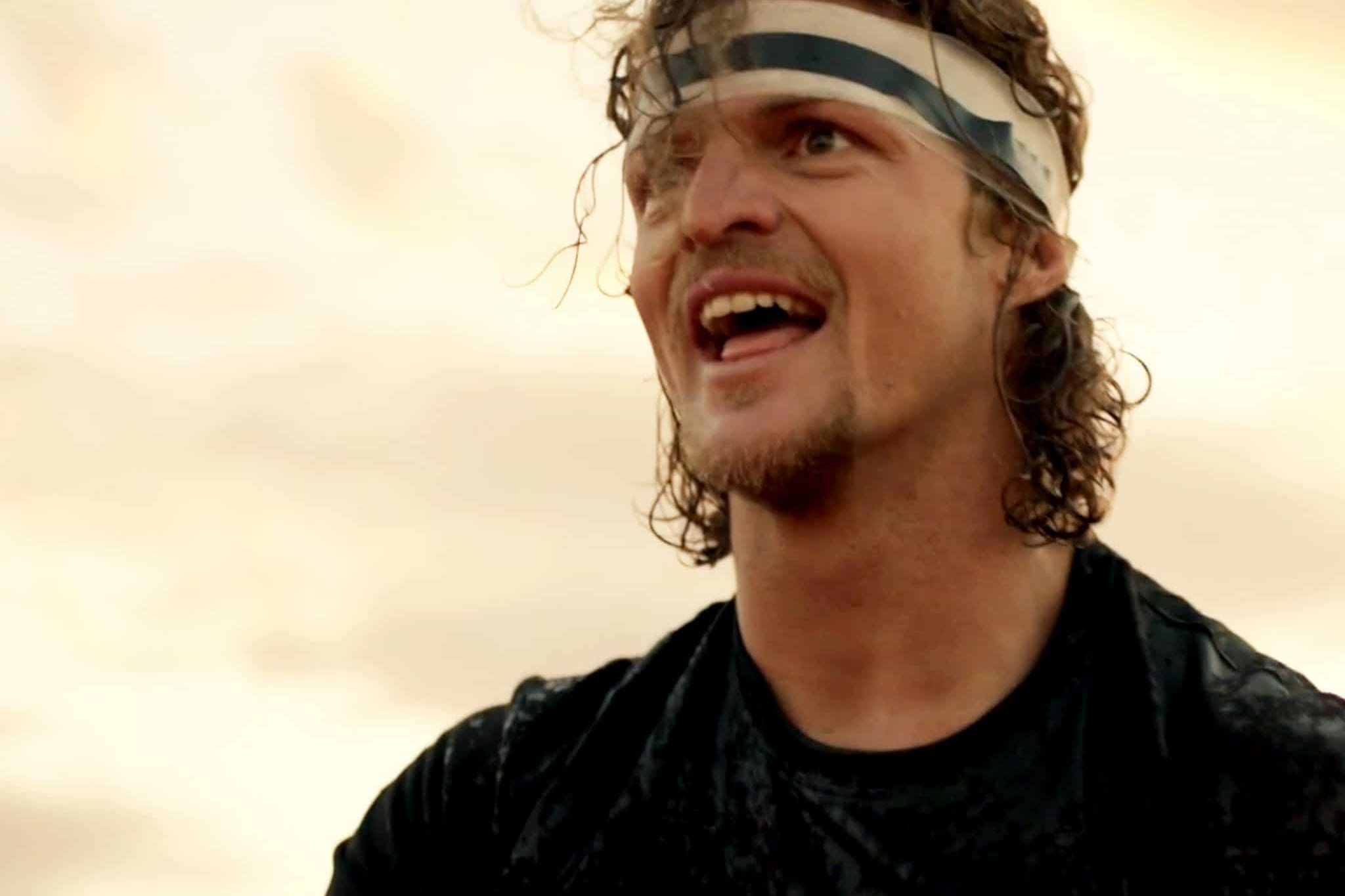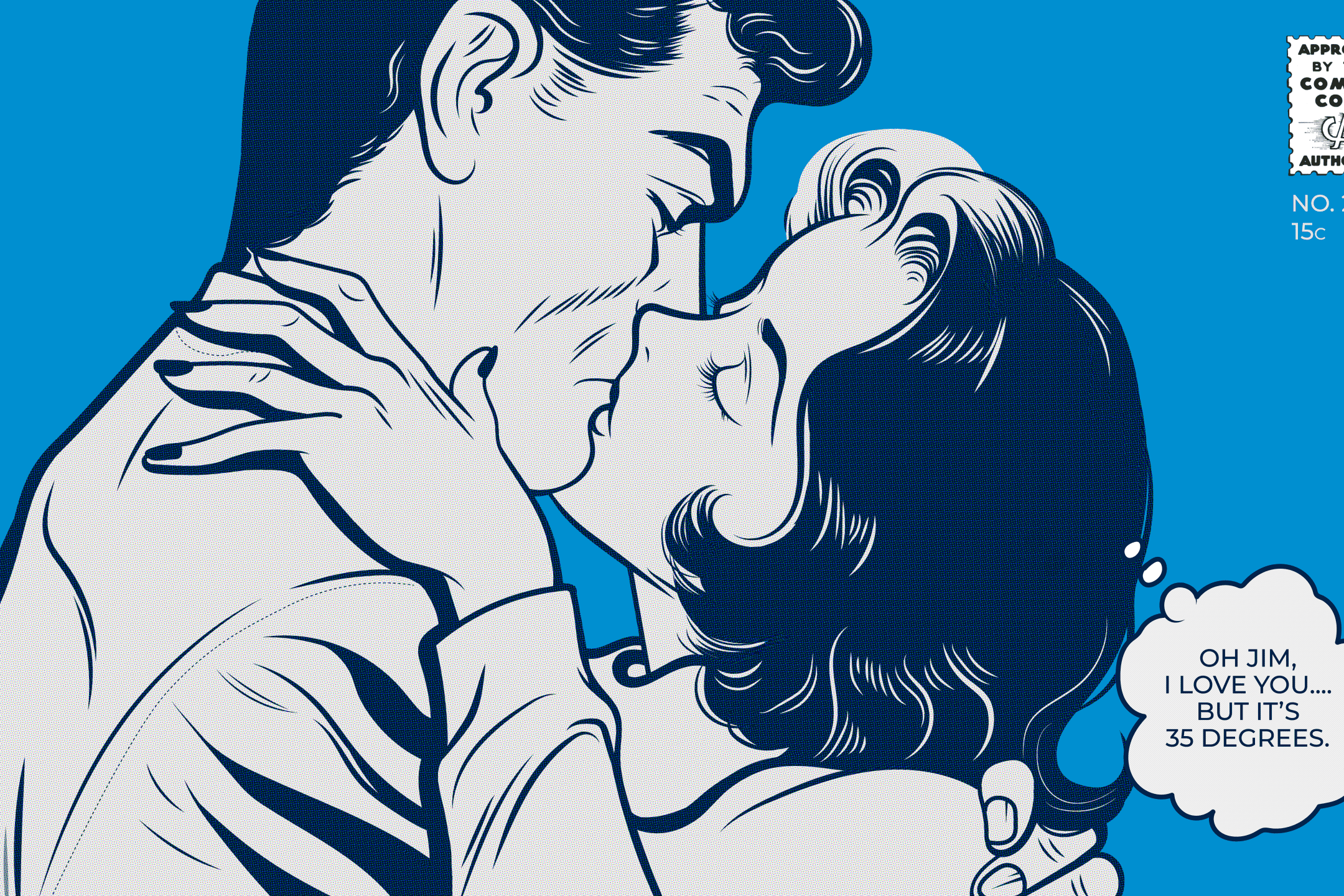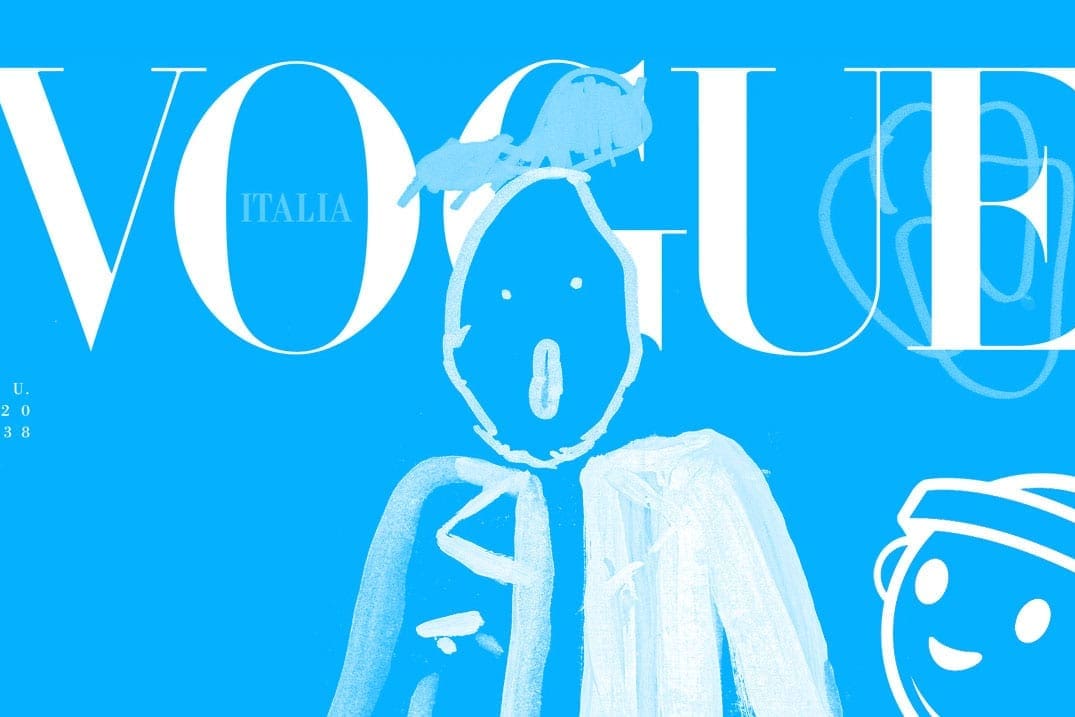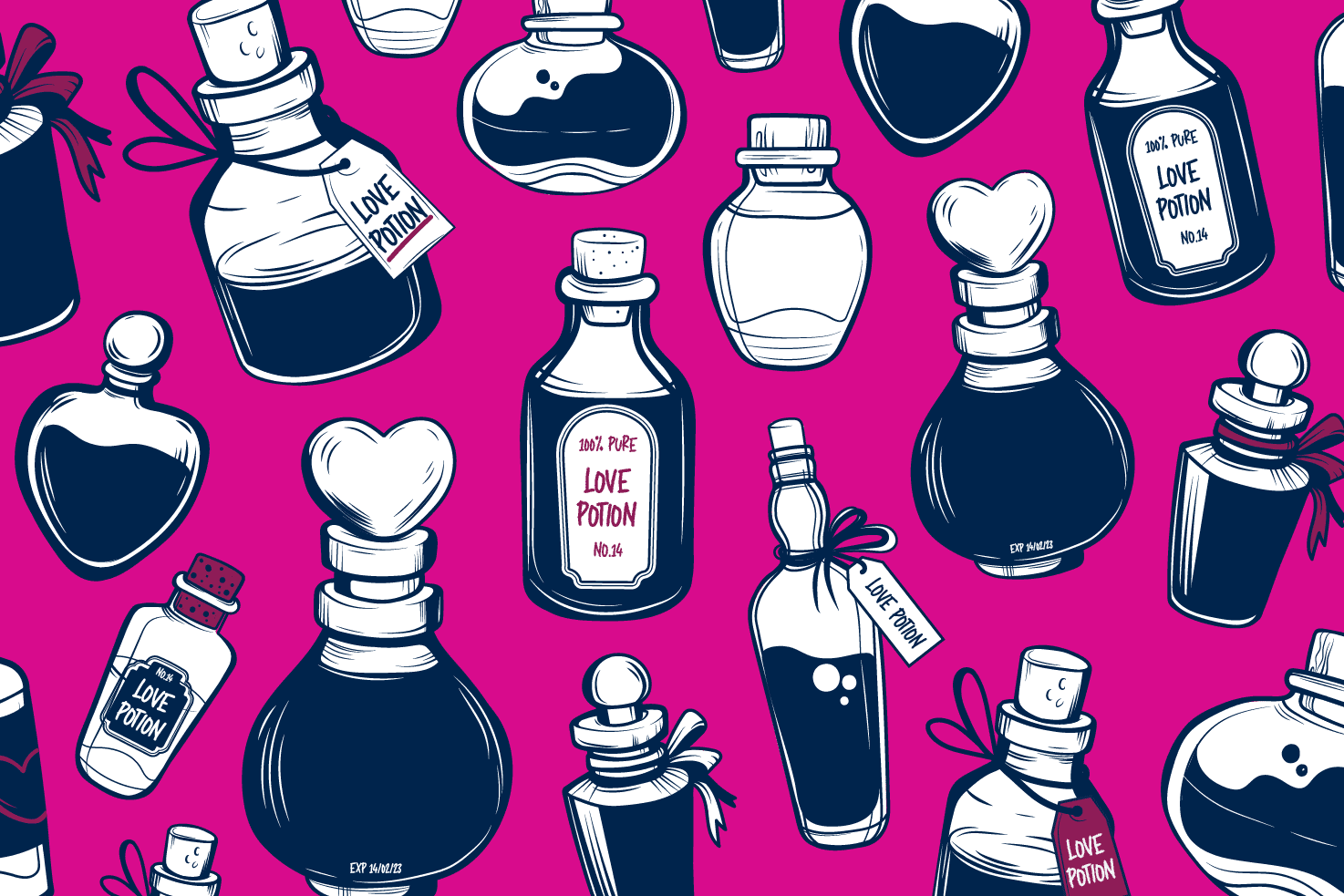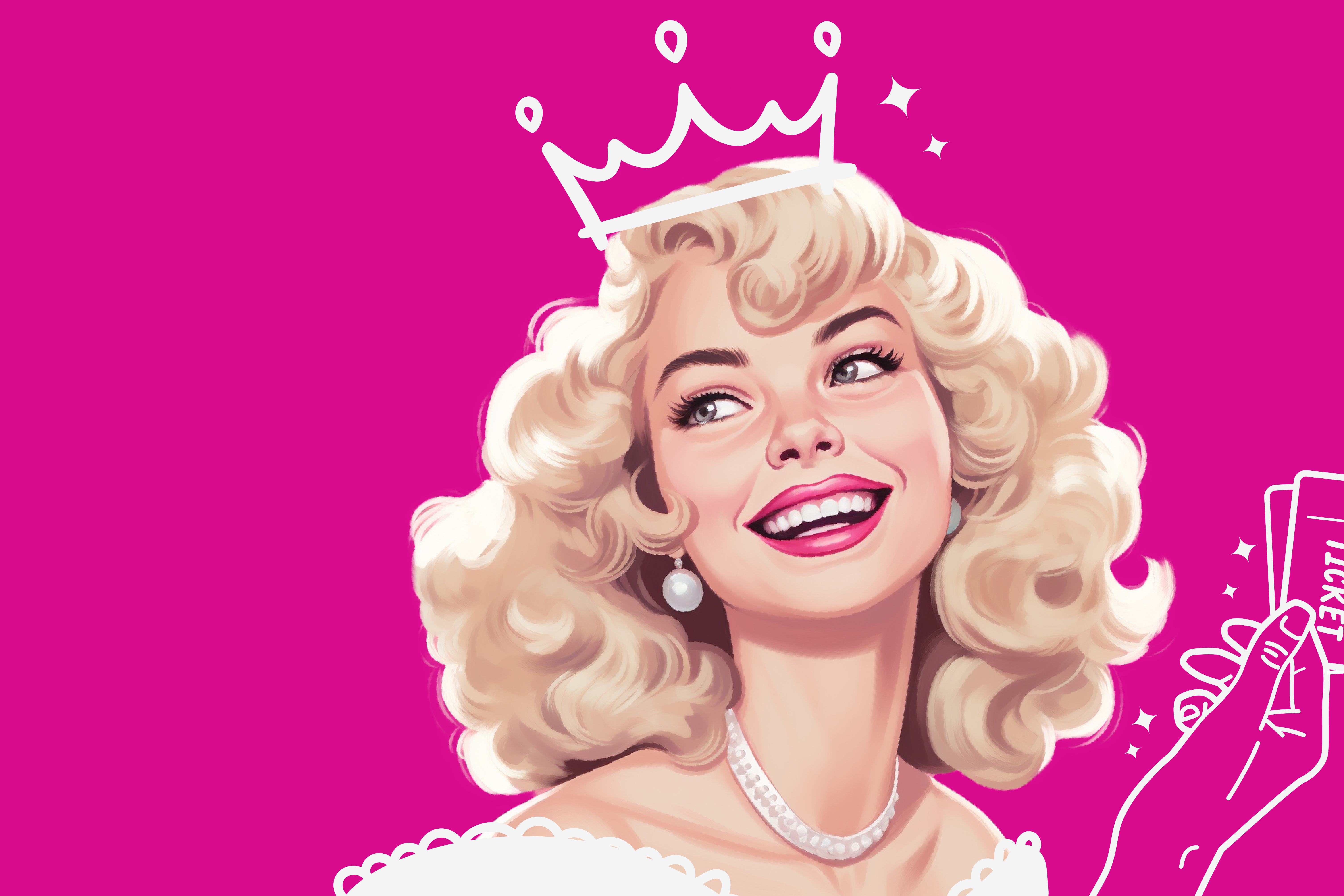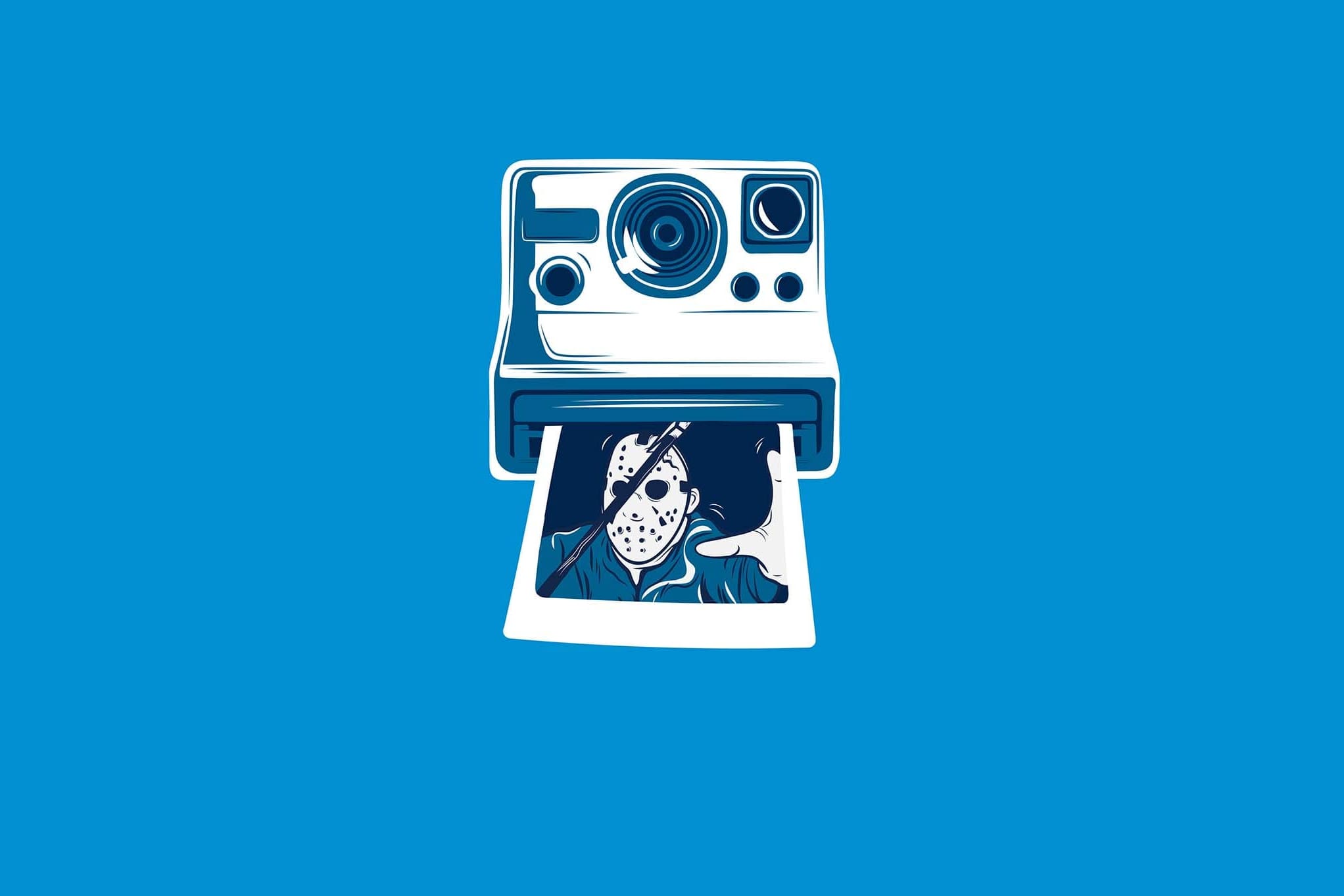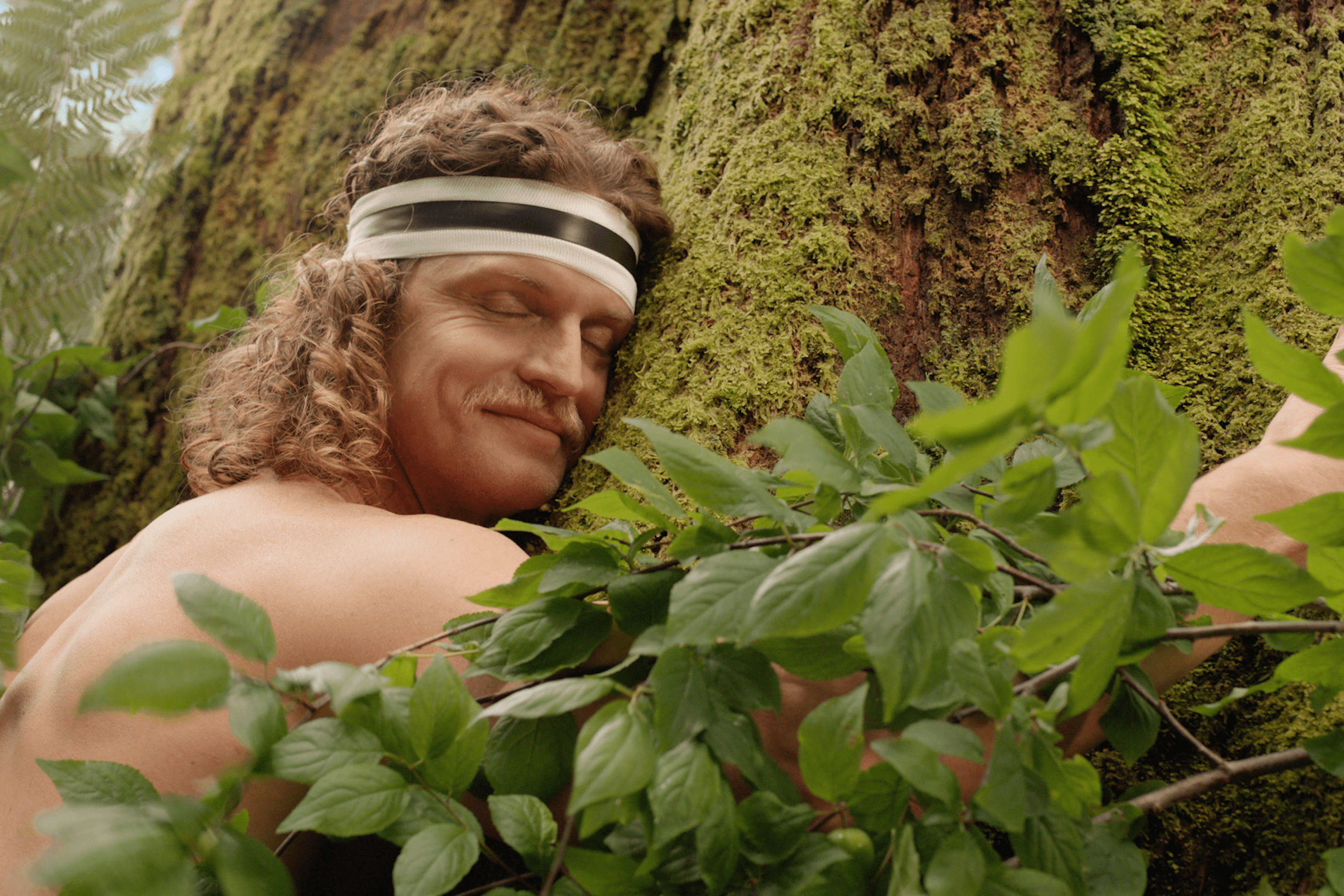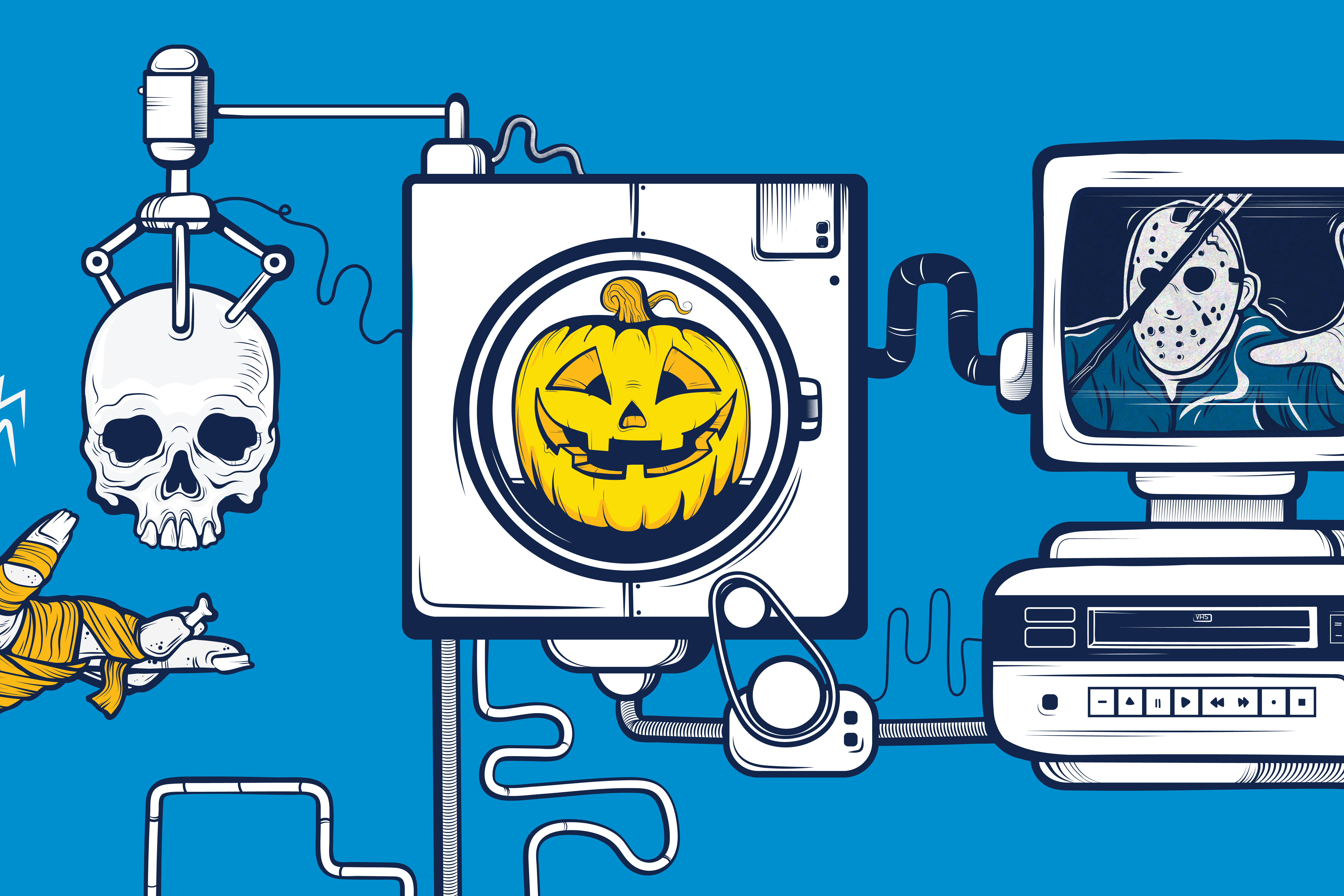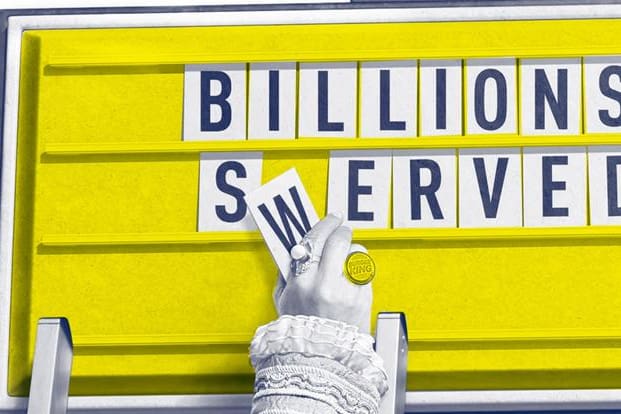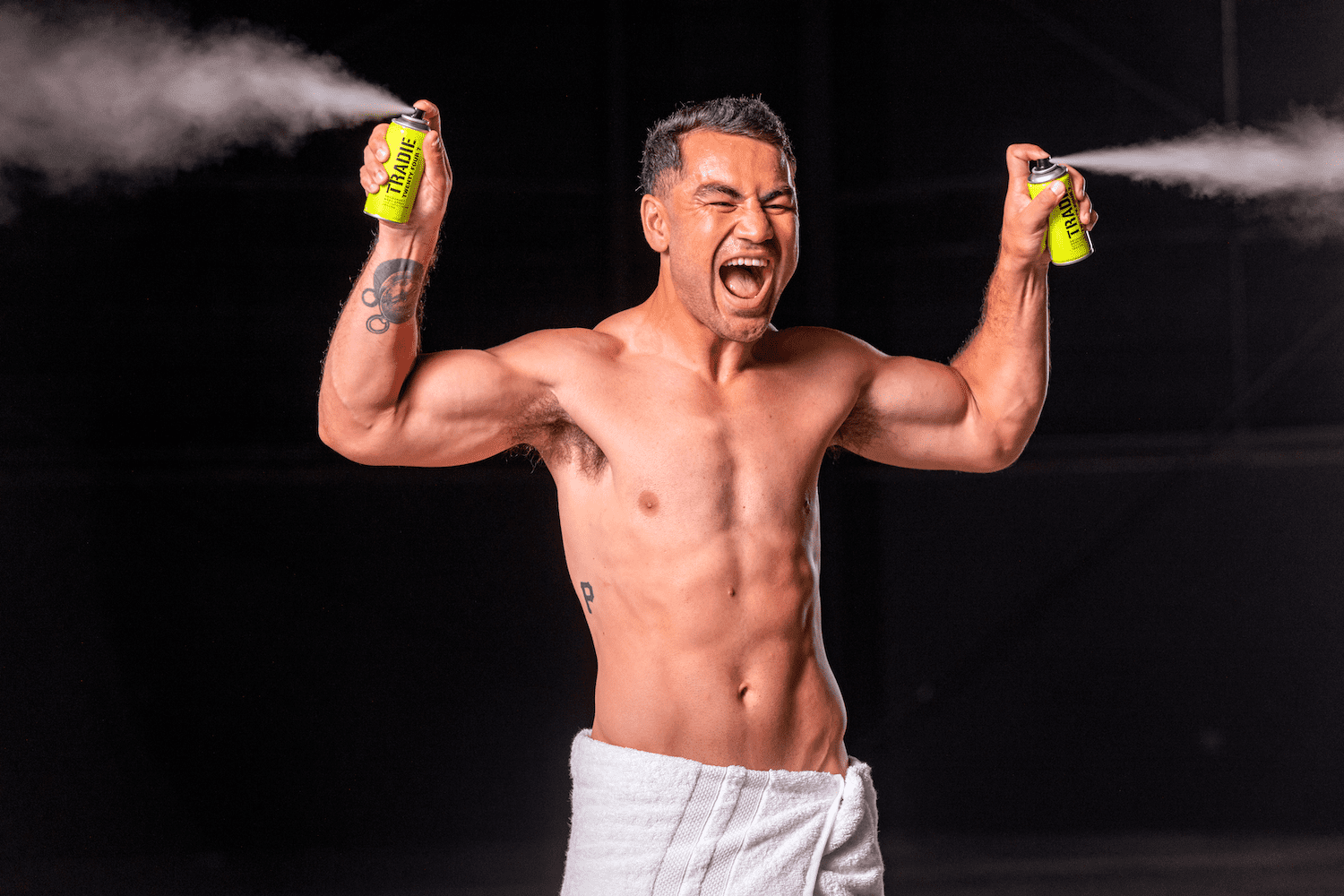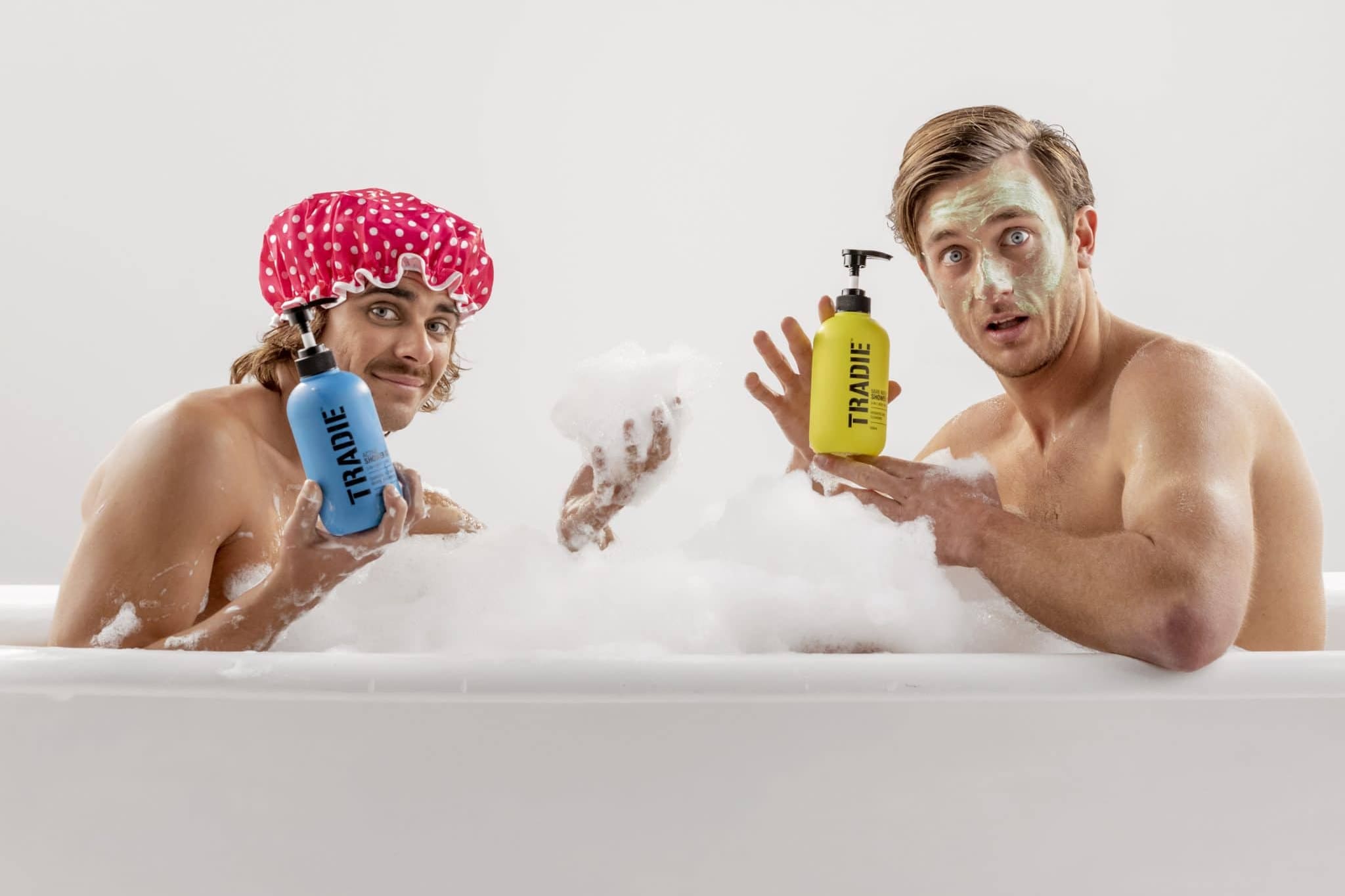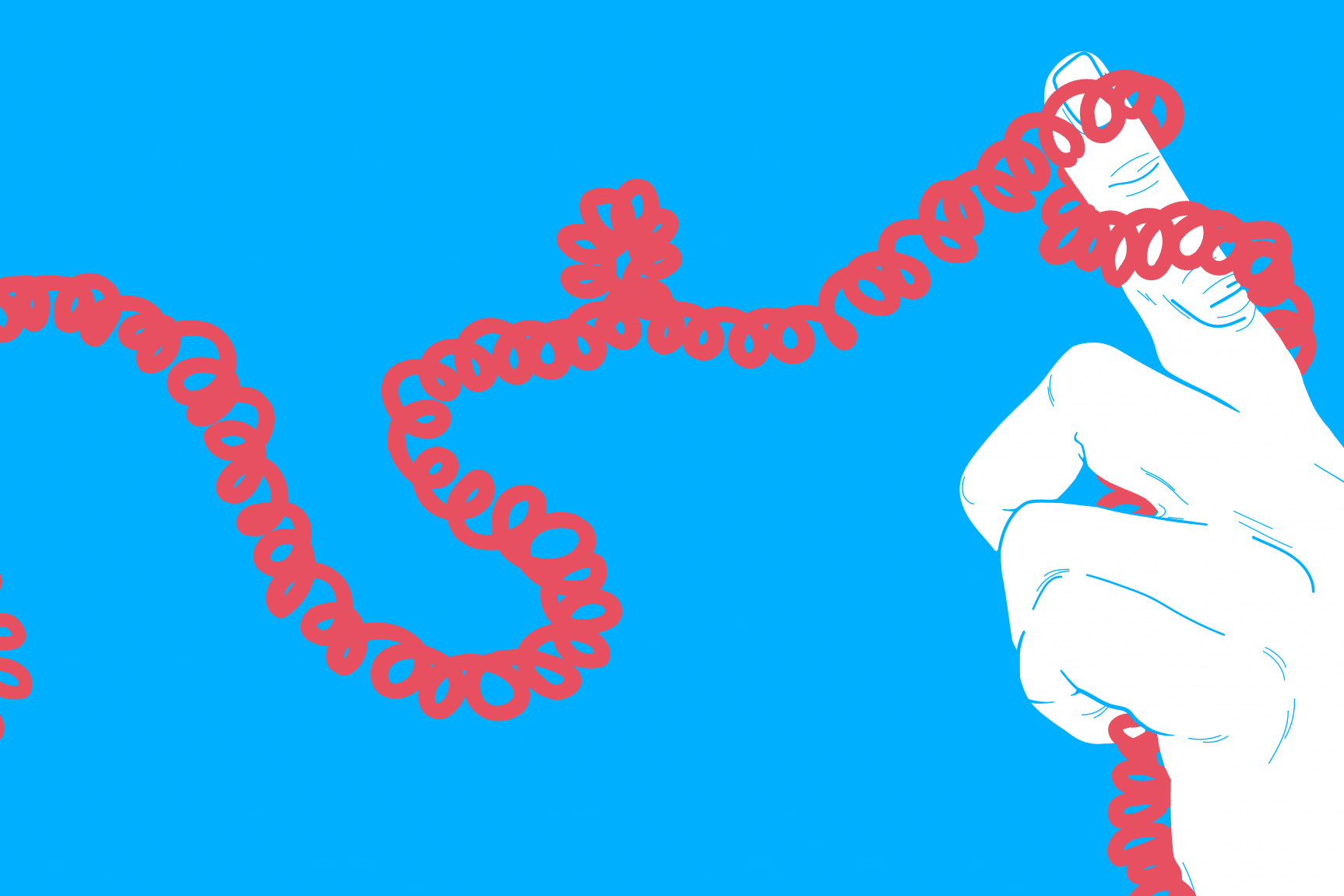//NOTES
Boys in the Bath
26. JULY. 2021
Sophie HanlonDesigner & Copywriter
“I would never buy your deodorant just based on your terrible crap poofy ad. Keep your gay tainted ads off my tv you bunch of idiots.”
What makes a deodorant commercial one of the most complained about ads in all of 2020?
The above complaint, and countless equally charming others, were received last year by the Advertising standards board regarding a series of Tradie body spray and body wash ads featuring comedy duo, The Inspired Unemployed. These ads received vitriol, not because of any shocking or controversial opinions expressed by the pair, but simply because they were situated in the same bathroom as one another when talking about the product. Try to contain your horror.
The complaints received all seem to stem from the same homophobic ideology: “It’s hard to believe this advert was approved to be shown on TV as it contains audible sounds of grunting and exhilaration that are matched to a couple having sex.” It doesn’t matter that the ads are comedic, it seems for a certain sector of the Australian public, the barest of contact between men might still as well be a homosexual orgy of roman proportions.
However, despite partaking in the same actions considered gay in the previous ads, the recent release of Tradie Bodywash’s new series of advertisements featuring players from the Melbourne Storm rugby club didn’t seem to garner the same vitriolic reaction. It’s a scary thought that men are required to be football giants with obliques sharp enough to cut someone before they are considered masculine enough to share a bathroom with another man.
It’s interesting that many of the critics hid prudishly behind the commandments of advertising standards as the foundation of their umbrage. These complaints seem to point more towards a precarious ideal of outdated masculinity than any real moral affront.
…Or, to quote a popular podcast’s catchphrase: ‘Toxic Masculinity ruins the party again.’
Toxic Masculinity denotes the behaviour of men conforming to archaic definitions of ‘maleness’: in other words, machismo, violence and sexism. As Michael Flood wrote in 2018, “The term typically is used to refer to the narrow, traditional, or stereotypical norms of masculinity which shape boys and men’s lives.” These norms include the expectations that boys and men must be active, aggressive, tough, daring, and dominant.” Its hallmarks are the alpha-male oppression of others, rejecting so-called ‘soft’ emotions and encouraging overtly sexist behaviour. Oh, hello Patriarchy. A particularly poisonous blend of misogyny and homophobia, Toxic masculinity decrees feminine or ‘gay’ behaviour in men is not just unacceptable, but even cause for outrage and anger.
But what exactly is so threatening about moving the ancient gender goalposts? Could it be these ‘old school’ men are threatened by the inherent vulnerability of expressing their feelings, exposing their soft underbellies, or embracing their inner femininity? And do they cling onto these outdated ideals even at the expense of their own mental health and wellbeing?
It’s been well documented that emotional suppression leads to increased psychological problems in men, such as depression, substance abuse, addictive behaviours and even suicide. Joseph Vandello, a social psychologist and Professor at the University of South Florida is quoted as saying “Part of the problem among men is that one of the markers of traditional masculinity is independence and rejection of help.” Restricting the way men can relate to each other through the threat of shame and ridicule, leads to a culture of male self-reliance and silence that obstructs emotional development and discourages men from seeking help. “No matter where the turmoil in modern men’s lives comes from, it seems like there would be a clear benefit to men feeling confident in seeking help to cope with mental illness and change the behaviors that harm their health—and that risk hurting others,” writes Amanda Mull in The Atlantic.
How great then, that in spite of the outrage and vitriol still spewing forth from the terrified gender rigid, this new generation of men aren’t afraid of blurring those gender lines. The Inspired Unemployed have built a huge following on their own quirky brand of gender-fluid skewed masculinity. From embracing their ‘bromance,’ to cross-dressing and camp, they have no problem mocking the traditional stereotypes men have been boxed into.
The men from the Melbourne Storm aren’t scared either. These athletes embrace and embody the noblest elements of maleness, like pride in one’s work and the mateship of sport, but they didn’t bat an eyelid at our scripts and scenarios. On the day of shooting, right from the get-go the players were building each other’s confidence offscreen, supporting their mates to deliver the best performances. And once the cameras were rolling, they commanded the screen with confidence and charm, completely oblivious to the so-called ‘shock factor‘ of being in a bubble-bath with another bloke.
Australia has had a long history of sloth-like change when it comes to evolving societal attitudes. A study by the Australian Human Rights Commission found that, “throughout the year 2012, verbal abuse had been experienced by a quarter of all gay men and lesbians, 47% of trans men and 37% of trans women.” Our true embarrassment as a country should not be that we managed to lose both a Prime Minister and a war with emus, but that America beat us to having marriage equality. No one should lose to the United States in a progressiveness race.
In spite of this, progress is being made every day in this country, and our attitudes are changing. Instead of trying to drag everyone kicking and screaming back into a toxic gender-binary past, we think it’s time these curmudgeonly old complainers caught up with the rest of us. At the very least, if these Tradie ads are anything to go by, being a true new man is a hell of a lot of fun.
Check them out for yourself, and let us know what you think!
Extra, extra!
Read all about it!Check out our latest INC news and views.
November 6, 2019
INCYMI: October
Phwoh, here we go again. Halloween is done and the Christmas adverts are dropping. How's that feel. Things are really cranking up, so here's a quick dip into…
March 4, 2024
Press Release: Tradie trades Cooee for Gingaaaah in Latest Spots
Tradie have now released their new Ginger variety with a play on the classic Aussie bush call “Coooeeeee”
July 8, 2020
Press Release: Tradie Body Spray
Tradie has joined forces with the Inspired Unemployed for the launch of their new Body Spray product range.
December 18, 2022
INCYMI: DECEMBER
This month every ad is competing to be the most heartwarming; and we're reaping all the benefits. Get into the spirit of the season and catch up on all things…
June 16, 2023
INCYMI: JUNE
You gotta fight for your right to party this month, as we explore the handful of campaigns that have successfully managed to slip through the rainbow coloured…
May 28, 2021
INCYMI: May
Ch-ch-ch-ch-changes! Turn and face the strange this month, as lots of changes are on the horizon, and others are desperately needed.
April 22, 2022
INCYMI: APRIL
Whether we’re spouting about it on social media, manning a megaphone, or even breaking out the old brick phone, we’ve all got something to say. From public…
October 26, 2023
Press Release: The Incubator wins PropertyMate account in competitive pitch
Property Mate has appointed The Incubator as its creative services agency following a competitive pitch.
October 23, 2023
Press Release: Say G’Day to Tradie Beer in Latest Spots via The Incubator
Tradie is stepping into the next great Australian…
December 1, 2021
INCYMI: DECEMBER
It’s the most wonderful time of the year; where every ad you watch carries the risk of awkwardly bursting into tears at your desk, as businesses the world over…
May 29, 2023
Press Release: Brick Lane Brewing crushes it at global ‘Crushies’
Brick Lane Brewing crushes it at global ‘Crushies’ Beer Marketing Awards for second year running
August 23, 2019
Press Release: Tradie No Bounce
Tradie has launched a new campaign to promote its ‘No Bounce’ men’s underwear featuring brand ambassador Nick ‘Honey Badger’ Cummins, developed by Melbourne…
March 4, 2024
INCYMI: February
While the halftime ads might steal the spotlight, who says you need a billion-dollar budget to make a splash?
October 14, 2021
Press Release: Flora & Fauna
Everyday eco, surprisingly better! Flora & Fauna launches first brand campaign via The Incubator
August 25, 2023
INCYMI: AUGUST
This month, it seems like everyone’s been struck by girl power. Between the Matildas almost getting us a public holiday and Mattel dolls being advertised at a…
March 7, 2023
Press Release: Tradie Bamboo – So much Nature
Tradie pits undies against the elements with their new breathable bamboo no-chafe collection.
June 28, 2019
INCYMI: June
Welcome to our first In Case You Missed It. Some of the more interesting things that landed on our desks over the last month.
May 9, 2023
Press Release: Tradie Storm Boys Scrub Up Alright
Melbourne Storm boys scrub up alright in Tradie’s…
August 30, 2022
INCYMI: AUGUST
Come with us if you want to live, as we're witnessing the beginnings of a technology takeover. Advertising is taking steps into sci-fi and trying out new…
February 1, 2022
INCYMI: FEBRUARY
Whether we’re spouting about it on social media, manning a megaphone, or even breaking out the old brick phone, we’ve all got something to say. From public…

